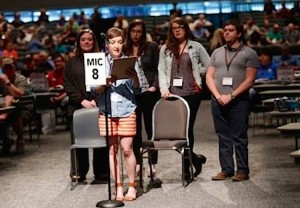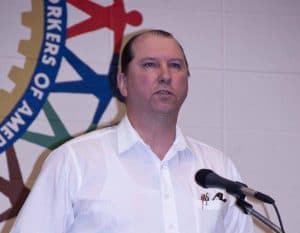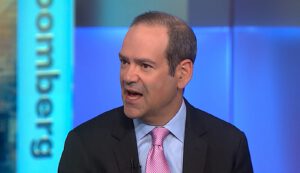
Efforts to reform the United Auto Workers are bound to fail — unless the federal government and the monitor appointed to oversee the union’s finances and internal elections are willing to curb the influence of the political machine that has controlled the union for decades.
That’s the charge leveled by a splinter group of union workers calling for more substantive changes within the organization’s structure, in particular the direct election of the union’s top executives.
“It is inevitably going to fail,” said Barbara Harvey, the lawyer representing UAWD, the group pushing for direct election of officers, in U.S. District Court in Detroit. The group’s perspective came during a hearing about the implementation of the consent decree that settled the lawsuit brought by the U.S. Justice Department aimed at the ending corruption that has badly damaged the union’s reputation in recent years.
Harvey is pressing for “status of intervenor” — an outside party allowed involvement in an event or process — for the group. This provides union members greater latitude in shaping the decisions of the court and the monitor that is being installed to oversee the union as part of the consent decree accepted by the union’s executive board. Status as an intervenor comes with the right to appeal the decisions of the monitor and the federal district court.
Union’s internal political machine unaffected by scandal

A dozen union officers, including five former members of the union’s top executive board, pleaded guilty to charges of criminal misconduct in the scandal. However, under the consent decree, Harvey noted, the power of administrative caucus, of which all of guilty parties were active members or leaders, remains intact.
One of the key reasons UAWD is asking to have the right to intervene is that administrative caucus continues to intimidate union members seeking to promote a greater measure of democracy within the UAW, Harvey said.
Current members of the union’s executive board have come out against reforms such as the direct election of top officers and called for support of the status quo where the top union offices are filled by delegates to a convention.
Even though the consent decree calls for a monitor, who is expected to be Neil Barofsky, former inspector general for the federal Troubled Asset Relief Program, Harvey noted there are no assurances for union members guaranteeing ballot security or secrecy. Both are vital to preclude retaliation or intimidation, they contend.
Democracy in which all union members have a chance to participate is the only way to ensure the union is reformed, according to Harvey, who served as the lawyer for reformers inside the Teamsters Union.

Nor do the internal reforms instituted by union work as a supposedly independent “ethics” officer went along with a board vote that did not conform to federal labor law.
Barofsky, while he has an impressive record and resume in investigating financial crimes, does not have much background in labor law, Harvey said.
UAW defends consent decree
Terence Campbell, the UAW’s attorney, argued the union has embarked on series of systematic reforms that have completely overhauled its internal accounting and reporting system under the supervision of outside consultants.
He also noted the crimes related to the scandal were financial in nature and revolved around the misconduct of a dozen different individuals.
The UAW’s leadership also is committed to the reform, noting every member of the union’s executive board signed the consent decree, according to Campbell. He contends intervention by UAWD is unnecessary since the union is committed to holding the referendum on the constitutional changes that could lead to the direct election of top officers.
Steve Cares, the attorney for the federal government, noted that Harvey’s clients would have every right to petition both the court and the monitor if they found something amiss in the union’s affairs or the conduct of internal elections.
As the hearing concluded on Zoom, Judge David Lawson, who will supervise the implementation of the consent decree, indicated he would take the UAWD’s petition and the comments for the DOJ and UAW under consideration as he prepared his written ruling.







